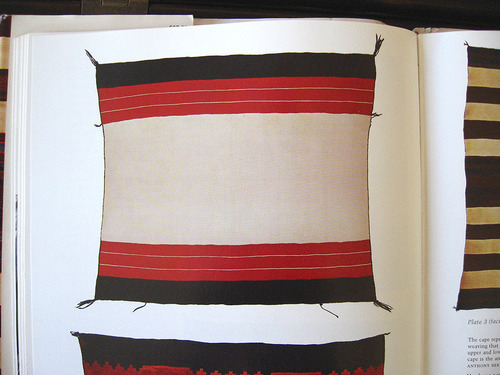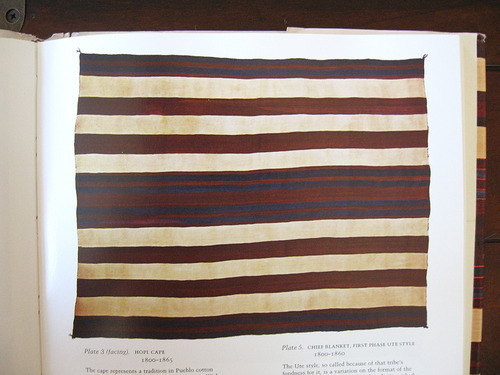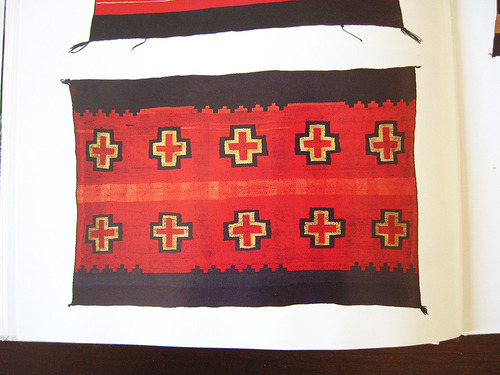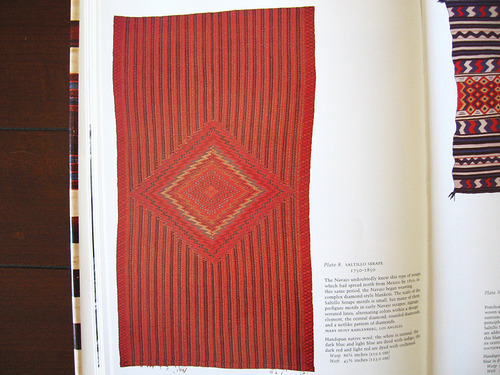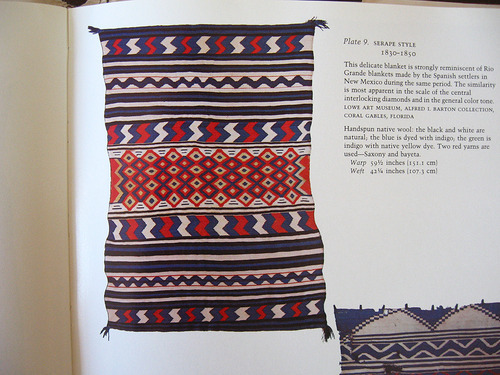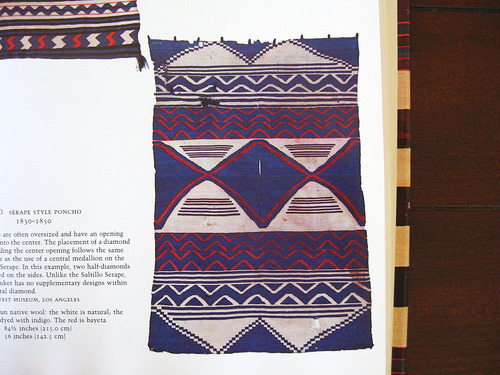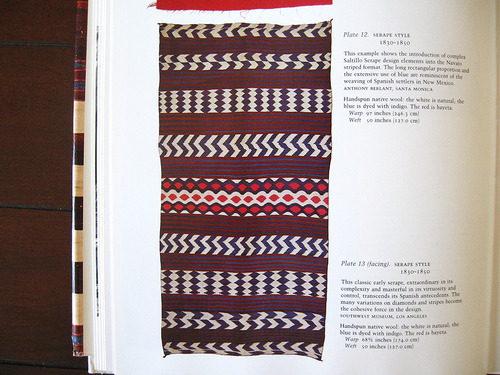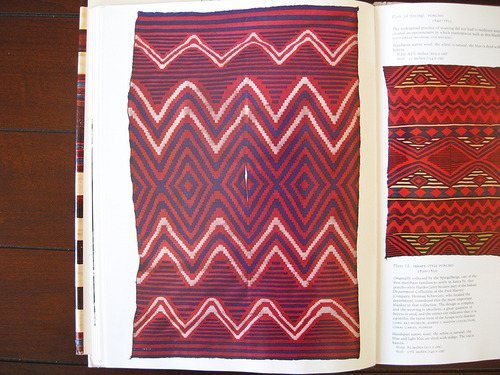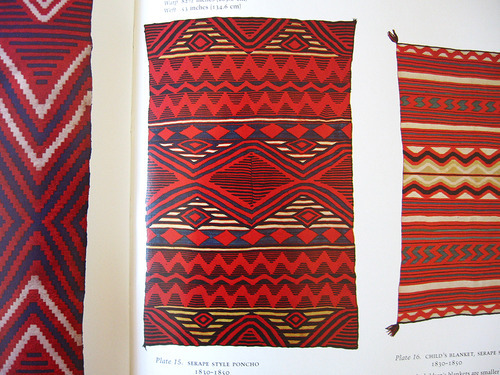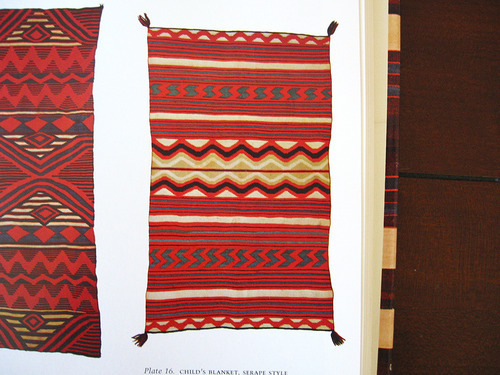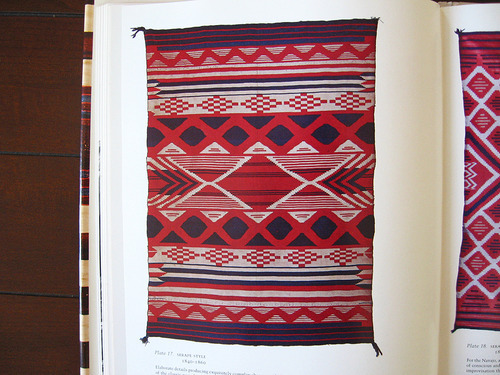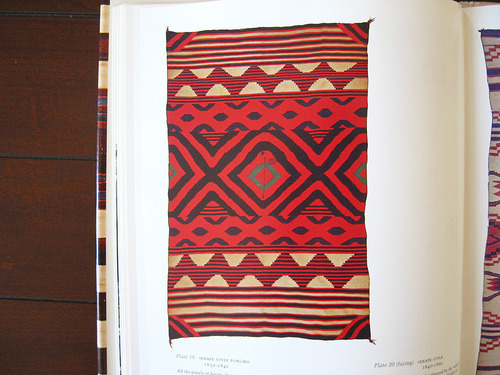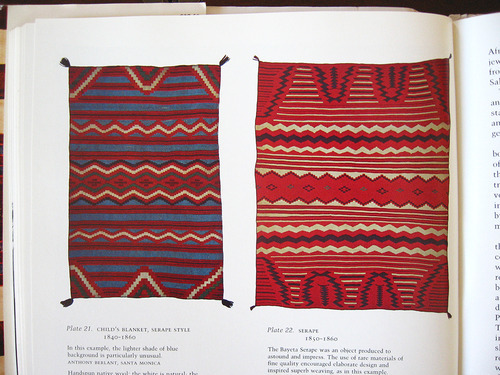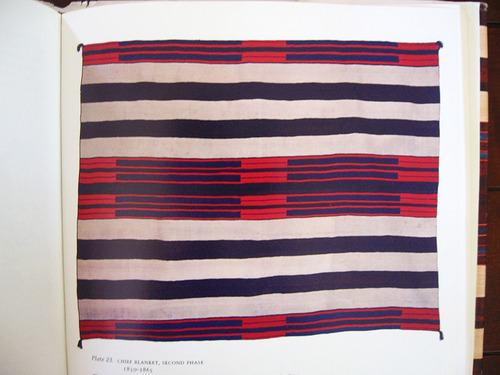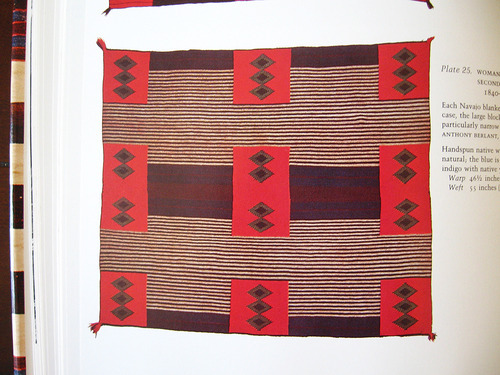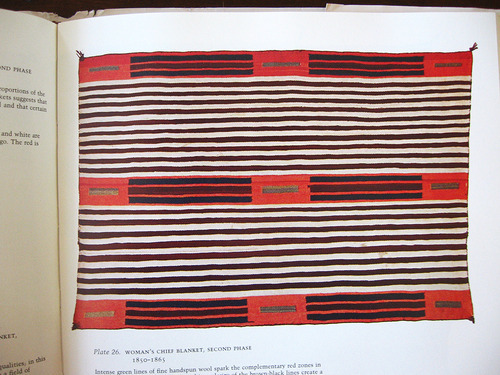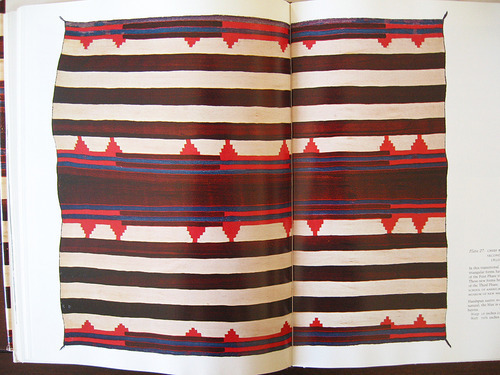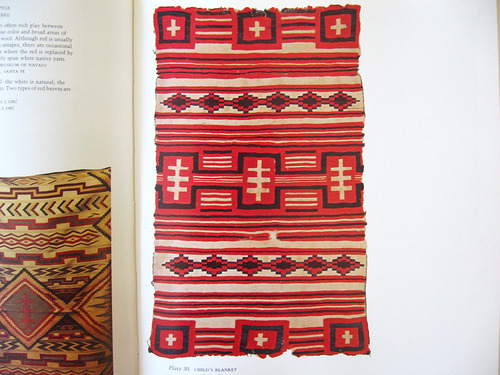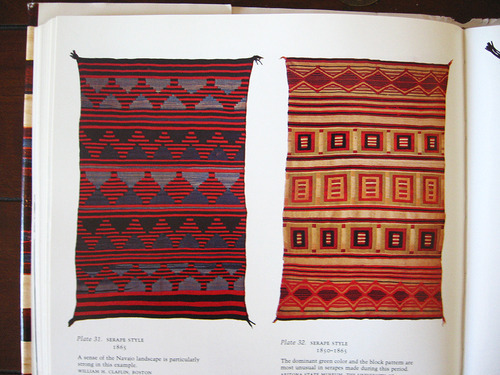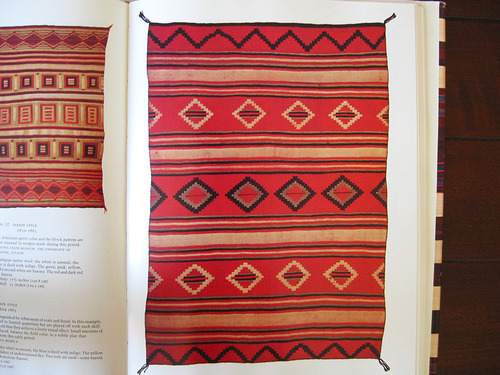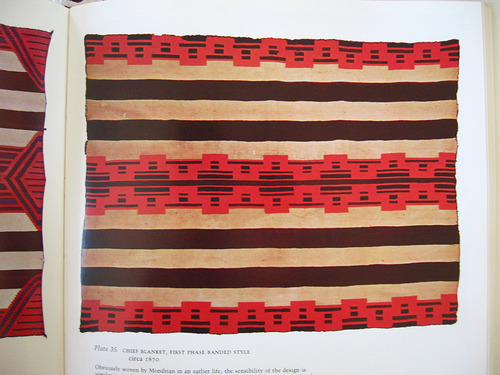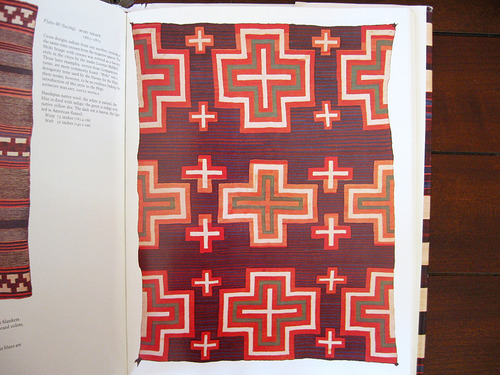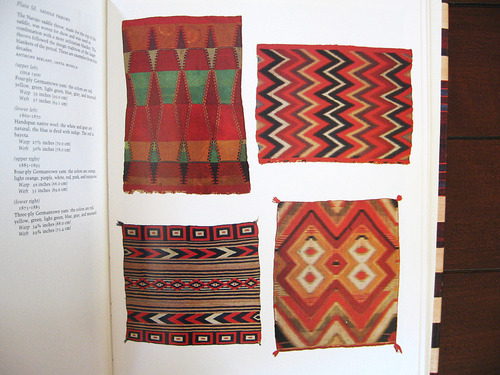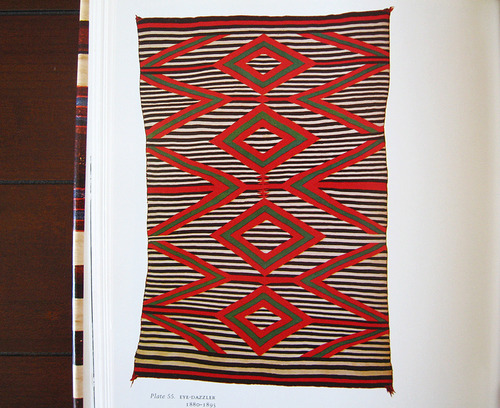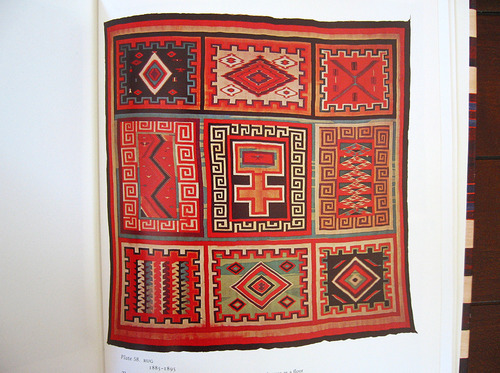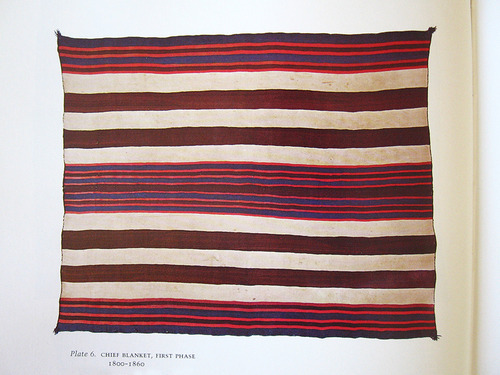
Since moving into my new apartment, I’ve been looking for some art to fill an empty wall, and had the idea some months ago to get a Navajo weaving. Little did I know, they cost a pretty penny (at least for authentic, original ones that can be described as having a “patina”). So to get a better understanding of what’s worth buying, I’ve been reading a little about the subject.
One particularly good book is Walk in Beauty, which is an expanded version of The Navajo Blanket, a book published by the Los Angeles County Museum in 1972 to accompany an exhibit. Aside from being a really good introductory text – covering everything from the Navajo’s cultural heritage in weaving to the designs and yarns used in these textiles – it’s also notable that the author, Mary Hunt Kahlenberg, was one of the first museum curators to break with tradition by displaying such weavings as fine art.
You see, up until recently, Navajo weavings were mostly studied by anthropologists and presented as ethnological collections. Which means samples were often viewed and analyzed with an eye towards the normative. Works were valued for being “typical” or “average” for a time or region, rather than for any technical or artistic excellence. Critics say that this, in turn, has inflated the price of inferior textiles, and in some ways, even stunted the Navajo weaving community by giving them perverse incentives.
Kahlenberg broke with tradition in the 1970s when she presented Navajo collections as fine art. In the setting of an art museum, these blankets were said to have taken on new life as woven paintings. New York Times art critic Hilton Kramer wrote in 1972 of the showing:
“The range is amazing. There are designs here — fields of gray with the leanest linear embellishments — that answer to the strictest notions of minimal aesthetics, and there are others that are so vivid in their color, so intricate in their accretion of forms, so overpowering in their optical effect, that they make the inevitable comparisons with recent developments in op art almost laughable. Nothing that our painting has produced in recent years exceeds in sheer visual power the strongest works in this survey.”
Granted, art critics can sometimes be a bit over the top, but the textiles really are quite beautiful. Here is a selection of photos from the book. Hopefully something as nice as one of these blankets will one day grace my empty living room wall.
